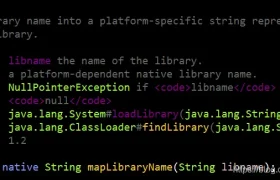概述
https://www.nginx.com/resources/wiki/start/topics/tutorials/config_pitfalls/#taxing-rewrites
1
2
3
4
5
6
|
# 不好的方法:
rewrite ^/(.*)$ http://example.com/$1 permanent;
# 好的方法:
rewrite ^ http://example.com$request_uri? permanent;
# 更好的方法:
return 301 http://example.com$request_uri;
|
因此,对于HTTP强制跳转HTTPS的语句,应当写成:
1
|
return 301 https://$server_name$request_uri;
|
默认配置
对于自己手动编译安装的Nginx,其默认配置文件nginx.conf 将80端口和443端口(默认被注释)的监听分别写进了两个server段中,这是一种非常符合生产环境的标准做法。因此,只需要将上述语句直接复制到80端口对应的server段中,同时将该段中的location配置全部复制到443端口对应的server段中即可。类似如下:
1
2
3
4
5
6
7
8
9
10
11
12
13
14
15
16
17
18
19
20
21
22
23
24
25
26
27
28
29
30
31
|
# https部分
server {
listen 443 ssl;
server_name yourname.com;
ssl_certificate /dir/xx.crt;
ssl_certificate_key /dir/xx.key;
ssl_dhparam /dir/dhparam.pem;
ssl_session_timeout 5m;
ssl_protocols TLSv1 TLSv1.1 TLSv1.2;
ssl_prefer_server_ciphers on;
ssl_ciphers ALL:!ADH:!EXPORT56:RC4+RSA:+HIGH:+MEDIUM:+EXP;
location / {
root /your/wwwroot/;
index index.html index.htm index.jsp index.do;
}
}
# http部分
server {
listen 80;
server_name yourname.com;
return 301 https://$server_name$request_uri;
location / {
root /your/wwwroot/;
index index.html index.htm index.jsp index.do;
}
# http部分的location字段可保留可删除
}
|
LNMP环境配置
如果你的LNMP环境使用的是流行的一键安装包,那么问题就来了。这个脚本生成的nginx.conf中没有443端口的server字段,因此在配置SSL证书的时候,有些人为了省事,可能会直接将443端口的监听一起写到server字段中,类似这种:
1
2
3
4
5
6
7
8
9
10
11
12
13
|
server
{
listen 80;
listen 443 ssl;
ssl_certificate /dir/xx.crt;
ssl_certificate_key /dir/xx.key;
ssl_dhparam /dir/dhparam.pem;
#listen [::]:80 default_server ipv6only=on;
server_name www.yourname.com yourname.com;
index index.html index.htm index.php;
root /your/wwwroot/;
}
|
那么如果你直接使用return 301 https://$server_name$request_uri; ,由于443端口和80端口在同一个server段监听,就会产生内部无限循环。当用户访问时,就会出现“重定向次数过多(ERR_TOO_MANY_REDIRECTS)”的错误。
正确的方法,使用IF判定,只对HTTP连接进行重定向:
1
2
3
4
5
6
7
8
9
10
11
12
13
14
15
16
17
|
server
{
listen 80;
listen 443 ssl;
ssl_certificate /dir/xx.crt;
ssl_certificate_key /dir/xx.key;
ssl_dhparam /dir/dhparam.pem;
#listen [::]:80 default_server ipv6only=on;
server_name www.yourname.com yourname.com;
if ( $scheme = http ){
return 301 https://$server_name$request_uri;
}
index index.html index.htm index.php;
root /your/wwwroot/;
}
|
但Nginx官方并不推荐过多的IF判定(可参考:https://www.nginx.com/resources/wiki/start/topics/depth/ifisevil/ )。
因此最好还是像Nginx默认配置文件那样,将80端口和443端口的监听区分开,同时采用第一种跳转方法,这也是更符合生产环境的一种做法。

